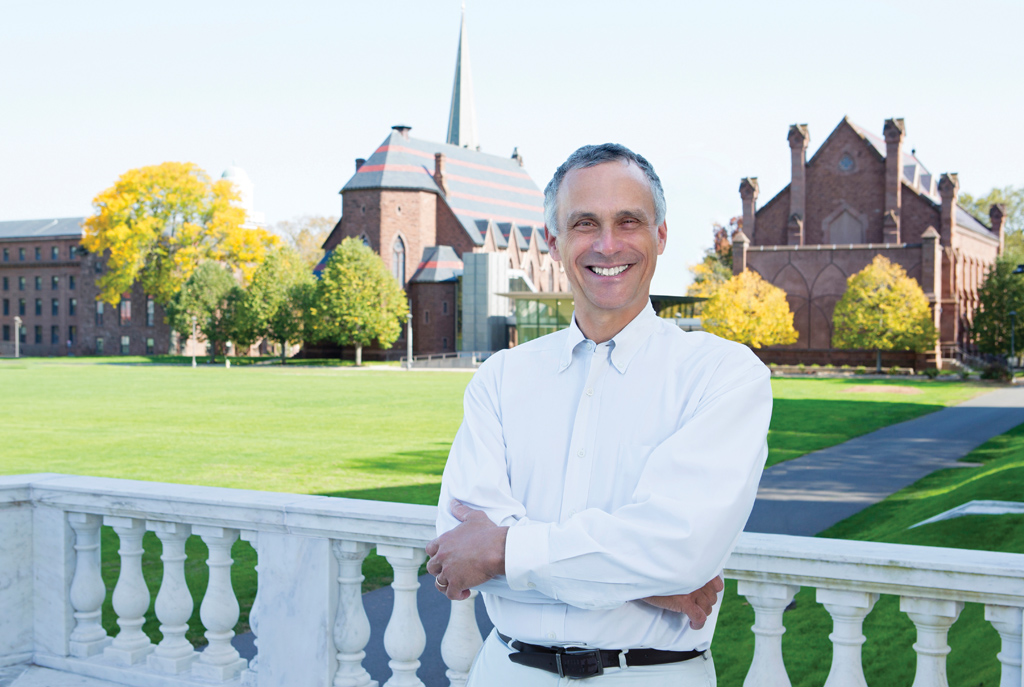EDITOR’S NOTE: The Illusory Bubble
I often hear students refer to the “Wesleyan bubble,” a term meant to suggest that life on campus is somehow apart from the world. In some respects, it is—by design. The opportunity to take a course with no apparent connection to anything practical or career oriented is part of the search for meaning and unexpected connections that lies at the heart of liberal education.
In many respects, though, the bubble is illusory. Wesleyan students regularly become engaged with life beyond the campus while they are undergraduates. Casey Dinges ’79 (page 32), for instance, tackled a research topic that led him to interview senior government o cials in Washington, D.C., and to gather information from citizens of North Dakota concerning a controversial water project. His senior thesis pointed him directly toward a career with the American Association of Civil Engineers in which he has sounded the alarm about the state of U.S. infrastructure.
I’ve heard so many Wesleyan graduates say they draw on their liberal education every day in their work, including Nick Rasmussen ’87 (page 14). As director of the National Counterterrorism Center, he says the skills he gained in the College of Social Studies enable him to synthesize information from various intelligence agencies and give our nation’s highest officials cogent assessments of threats to our safety.
Rasmussen is a recipient of the National Intelligence Distinguished Service Medal (2017) whose work doesn’t grab lots of headlines but does save lives. His is an inspiring story, and inspiration can be found across our alumni landscape, including among our newest graduates. Rebecca Winkler ’16 (page 68) developed a senior thesis through work with the Mahouts Elephant Foundation and is now project manager for Walking with Elephants. Her efforts help provide income to a Karen hill tribe village in Thailand and enable elephants to thrive in their native habitat.
Undergraduates take their interests beyond the campus in too many ways to enumerate here. Whether through service-learning courses that marry theory to practical work in the community, refugee resettlement in Connecticut, innovative projects funded by the Patricelli Center for Social Entrepreneurship, or efforts to address environmental issues locally and worldwide, students display a spirit of practical idealism in delightfully surprising ways.
At a time when truth is under assault and facts are denied, the challenge for liberal education is significant. Now more than ever, we need individuals who can translate intellectual rigor into action beyond the university and take courageous stands regardless of political backlash. As Karen Donfried ’84, president of the German Marshall Fund of the United Sates, puts it on page 20, “If there are things that we as Americans think are right and care about, we should stand up for them.”
—William Holder ’75, editor
IN OUR NEXT MAGAZINE WE WILL BE LOOKING AT ISSUES AND EVENTS THAT SHAPED WESLEYAN’S HISTORY. SUGGESTIONS? PLEASE LET US KNOW: WHOLDER@WESLEYAN.EDU.

